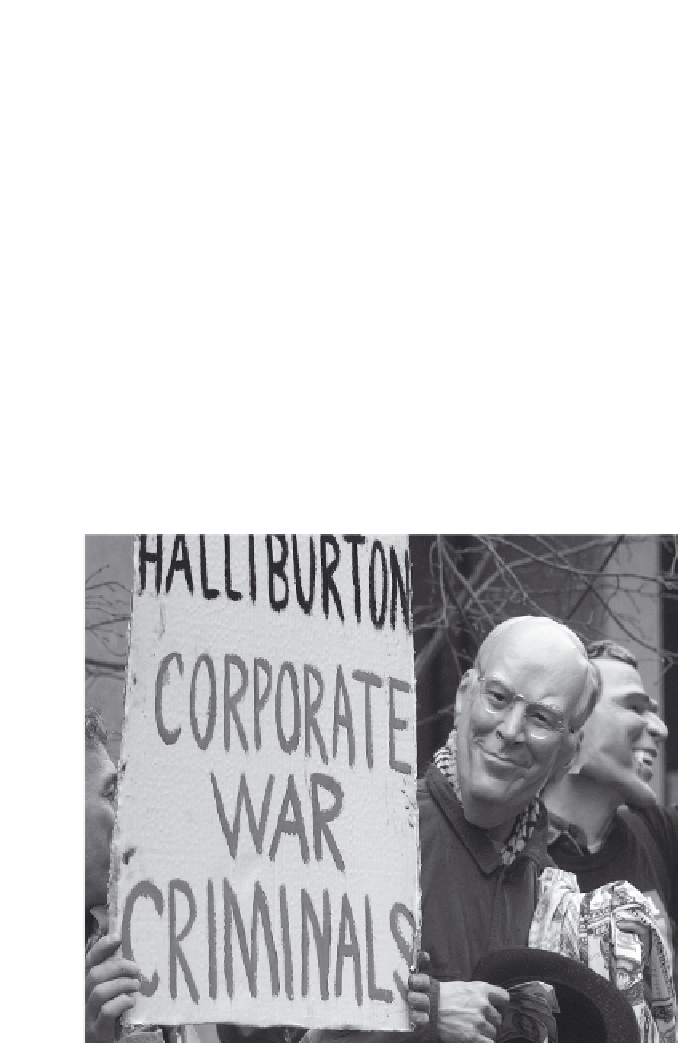Environmental Engineering Reference
In-Depth Information
personal wish to complete the job of ousting Saddam Hussein that his
father left undone; the ideological desire of his neo-conservative entou-
rage to force the pace of regime change in the Middle East; and last but
not least, the misinformation supplied by Iraqi exiles and the gullibility of
those in Washington who listened to them.
What is of most interest for the purposes of this topic is whether oil
was a factor, and if so, how big a factor. The administration of President
George W. Bush had had energy on its mind right from the start. Vice
president Dick Cheney presided over a task force that came up with a
national energy plan in May 2001, within three months of taking office.
Part of it focused on the domestic electricity sector, with sound analysis
and prescriptions. Another part of the plan, which was focused on oil,
was interpreted by many as the pay-off for oil-company funding of the
Bush/Cheney campaign in 2000. Cheney, who had previously headed the
Halliburton oil services company, brought some of this suspicion upon
Two masked protestors, one of US Vice President Dick Cheney, one of George
W. Bush, during a protest in front of the Washington office of Kellogg Brown
and Root Inc (a subsidiary of Halliburton), in February 2004. The Pentagon had
recently anounced it had opened a criminal investigation against the company,
with allegations of potential overpricing of fuel delivered to Baghdad.































































